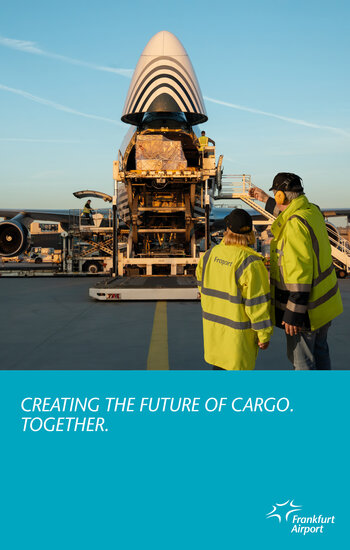U.S.-based Air Lease Corporation (ALC) has pulled out of a contract with Airbus for the purchase of seven A350F. Instead, new customer, Avilease from Saudi Arabia, signed a purchase agreement for ten freighters of this series. All in all, this results in a plus of three freighter aircraft for the European manufacturer but points to tougher times ahead.
So far, there has been no direct confirmation from Airbus of ALC’s withdrawal from the contract. However, the step is evidenced by the fact that the order no longer appears on Airbus’ June order list. ALC’s step marks a complete turnaround from the lessor’s stance taken at the Dubai Air Show in November 2021. ALC was the first customer to sign a purchase agreement for the new Airbus freighter aircraft. The purchase was justified by the expected strong increase in e-commerce in the near future and the resulting demand from airlines for capacity. Shortly after agreeing the deal, Steven Udvar-Házy, ALC’s Managing Director, said that negotiations with potential operators were already underway, including airlines in Europe, North America and the Far East.

Seven down, ten up
From the aircraft manufacturer’s perspective, Air Lease’s withdrawal is a setback for the A350F program, but it doesn’t kill it. Particularly since Avialease, backed by Saudi Arabia’s Public Investment Fund (PIF), stepped in, signing an order for ten A350 freighters. Due to this adjustment, the A350 firm order backlog increased by three – from 63 to 66 jetliners.
Main operators and lessors with firm orders include CMA CGM Air Cargo, Air France-KLM Cargo, Singapore Airlines, Etihad Cargo, Silk Way West Airlines, Turkish Airlines, Emirates, and Latam Cargo.
According to Airbus, the A350F offers up to 111 tons of payload, an 8,700 km nonstop range and burns 40% less fuel compared to other carriers of this size, such as the B747-400F.
The asset gamble
ALC’s withdrawal comes at a time of increasing volatility in the global cargo market. This peaked in 2022–2023 as the market reacted to the supply chain disruptions and high e-commerce volumes, but rates have plummeted since then as lower deck capacity rebounded due to increased passenger traffic.
The downward trend is illustrated in IATA’s latest cargo report, with cargo demand down 3.2% year-on-year, while capacity grew by +4% through MAY25 – putting pressure on cargo rates. This may explain why UPS and FedEx have recently postponed widebody freighter deliveries or retired older aircraft earlier than projected. Meanwhile, inflationary tendencies and rising interest rates are curbing the hunger for new capital-intensive assets. In addition, volatility in transpacific routes, influenced by unpredictable changes in U.S. tariff policies, generates uncertainty. This situation may have influenced the strategy of lessor ALC, which must ensure the long-term placement of its assets.

Wagner climbs up the Airbus ladder
In other news: Airbus announced the appointment of Lars Wagner as its new Commercial Aircraft Business CEO. He is currently Chief Executive Officer (CEO) of MTU Aero Engines AG, based in Munich. Wagner will become a member of the frame maker’s Executive Committee and succeed Christian Scherer as CEO of the Commercial Aircraft business, effective 01JAN26. The 50-year-old, who joined turbine producer MTU Aero Engines in 2015, held several management positions at Airbus including in Bremen, Hamburg and Toulouse. Lars holds a degree in mechanical and aeronautical engineering as well as an MBA.




